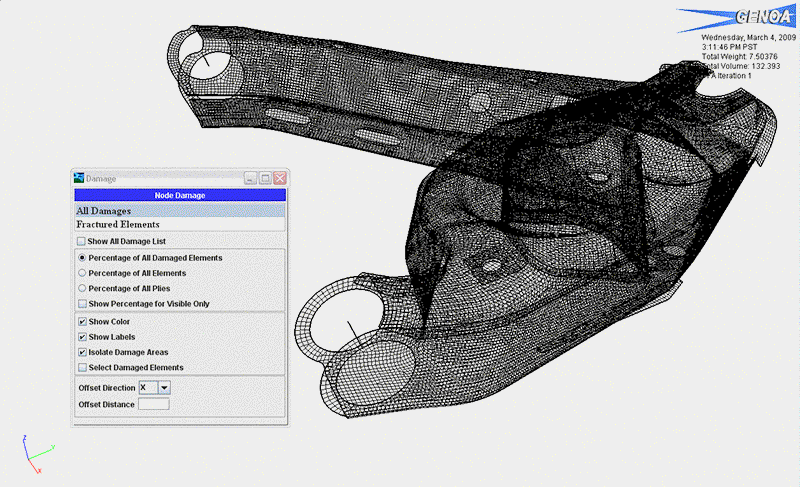The ultimate goal of lightweighting is to build with the least weight possible in order to achieve better fuel efficiency. Light weighting may also involve design (topological/shape) optimization, in which parts are redesigned to carry loads in a more efficient manner. Here, optimization refers to the process of finding the most influential design parameters that help to satisfy project requirements. Engineers typically use design of experiments (DOE), statistics, and optimization techniques to evaluate trade-offs in order to determine the best design approach.
GENOA Probablistic Progressive Failure Analysis (PPFA) has the capacity to model these sensitivities and scatter related to specific deign variables. GENOA PPFA can help engineers evaluate the reliability of a structure in presence of uncertainties in constituent properties of the composite, properties of metal, fabrication variables, geometry, and/or service conditions.
Using GENOA PPFA and GENOA PA with a commercial FEA solver, engineers are able to:
Calculation of sensitivities of design parameters to the response.
Comparing designs to improve structural reliability.
Perturb random variables and extract response from FEA solvers.
Select robust high fidelity methods (e.g. Advanced Mean Value and Monet Carlo).
Improve design durability and reliability with study user-defined response.
Evaluate reliability of aerospace and automotive composite parts and structures.
Rationalize between two competing designs based on failure probability.
Treat non-statistical uncertainty as a random variable.
Predict failure in increased risk structures (e.g., pressure vessels, leading edge, chassis).

Download the latest case study.
Download the latest datasheets.

2601 Main Street #660 Irvine, CA 92614
(562) 961 - 7827
info@alphastarcorp.com
@2022 - 2023 AlphaSTAR. All rights reserved. Trademarks used herein are trademark or registered tradmarks of AlphaSTAR. All other names and brands are registered trademarks of their respective companies.
